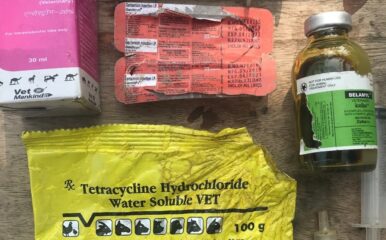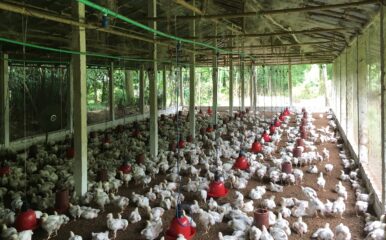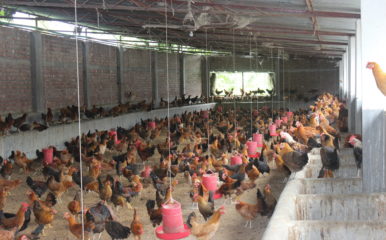
Of parishes, poultry and pandemics: when the local is also global
Published on 19/03/2021

Tony Barnett
Parish council meetings, the most local form of government in the UK, are famous for being boring, indeed ‘parochial’. A welcome and amusing relief from pandemic concerns came recently when an uncharacteristically noisy local row broke out at one, in Handforth in the north of England. It was recorded courtesy of Zoom, garnering widespread attention and rocketing one Jackie Weaver to internet fame.
Earlier this month another (much more pacific) such council, that of Corpusty and Saxthorpe, in a remote part of East England, confronted yet another boring agenda – footpaths, state of the village hall, road maintenance, electricity cables causing an eyesore, and of course planning permissions. How samey, how … well, just boring.
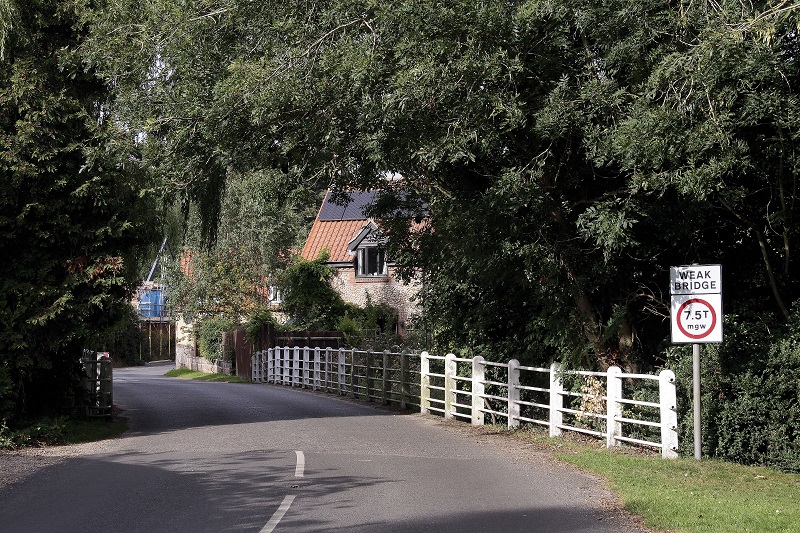
But a closer look reveals that the very local and the hugely global came together in a planning application for a free-range egg production poultry farm housing 32,000 birds. All very sustainable, all very homey and not at all boring. What’s to complain about?
Well, whatever the parish council decides, there are national and indeed global implications. Let’s begin with the quantity of waste the (relatively small) unit will produce – 833 tons of manure a year!
But this is not about smell (although that is of course a characteristically parochial concern) or even noise or traffic. It is about zoonoses and zoonotic disease transmission, issues which until the present pandemic would have occupied little space in the minds of ordinary people or parish councils.
Today we must think about such things. Chicken poo can carry lots of viruses and wild birds’ snacks may turn out to be the ordure of the day.
And there is a connection to current cuts in the UK overseas aid budget. Why? Corpusty and Saxthorpe is a little village. The area is peaceful and mainly arable, a tourist spot for discerning metropolitans, some of them bird watchers.
It is also a prime place for the shooting of pheasants and other game birds, which is an important part of the local farming economy and local leisure for some. This year, even more pheasants and partridges are to be seen: Covid-19 lockdown has meant that many fewer than usual were shot in the winter.
So, what is the link to … cuts in the overseas aid budget?
While many in the UK yawn at the whole thing (‘Why are we giving money away to other countries when we’ve spent so much on COVID-19?, they ask) there is a connection. And understanding how large-scale poultry production to produce eggs and the UK’s overseas aid budget cuts are linked is important.
The GCRF One Health Poultry Hub, led by the Royal Veterinary College and comprising many other high-level research institutes in the UK and 10 further countries, including in the Hub’s case countries of Bangladesh, India, Sri Lanka and Vietnam, is a very large programme currently seeking to understand the epidemiology (another of those words most of us have learned to use in the last year or so), genomics, economics and more of intensive poultry production in south and southeast Asia.
Its aim? To understand how we produce food can also produce the risk of increased opportunities for animal (and bird) diseases to spread into human populations… producing what? Yes, we all know the answer to that – PANDEMICS!
The One Health Poultry Hub, of which I am pleased and proud to be a member, is now threatened by the Government funding cuts.
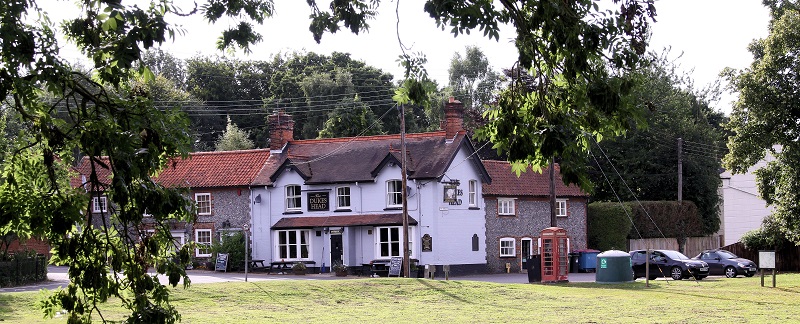
When Corpusty and Saxthorpe Parish Council (of which I am also pleased and proud to be a member) meets to discuss a ‘local’ issue, it will also be discussing a global issue. Wild bird migrations into Norfolk from far away, large-scale game bird shooting, free range poultry all contribute to the risk of avian influenza (‘bird flu’) spreading from wild birds to poultry and then to people. That’s the link.
Indeed, right now all poultry are under lockdown because of the ongoing threat of avian influenza.
Boring? Parish councils? Not at all. The transition of a wild bird flying in to Norfolk from Asia, defecating virus-laden poo in the east of England and infecting farmed chickens there – and from there the spread of avian influenza (in the form of potentially pandemic highly pathogenic avian influenza [HPAI} H5N8 mutant – already identified in commercial flocks not far from the village in another part of Norfolk) from poultry to people could be a matter of life, death, more lockdowns, and yet more economic and social disruption.
Cut the aid budget? For such important research?
Well, just think about it.

